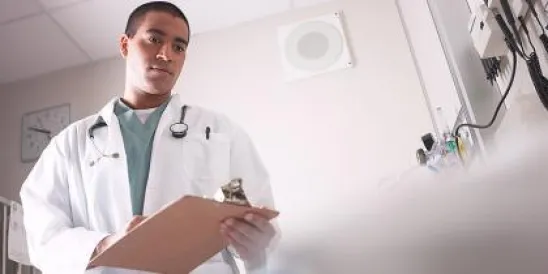Important guidance regarding COVID-19 testing in the workplace was recently issued by the Centers for Medicare & Medicaid Services (“CMS”) in the form of Frequently Asked Questions regarding Over the Counter (“OTC”) Home Testing and CLIA Applicability.
CMS regulates clinical laboratory testing pursuant to the federal Clinical Laboratory Improvement Act (“CLIA”). Generally, a laboratory or clinical setting (such as a physician’s office) must obtain CLIA certification to perform laboratory testing. Some OTC tests, however, are approved by the Food and Drug Administration (“FDA”) for home use and the new FAQs address the use of OTC home tests in the workplace.
The FAQs clarify that a test authorized for home use by the FDA (a “home test”) may be used in other non-CLIA certified locations, such as a workplace, provided the test is self-administered and self-read. Specifically, the FAQ states:
In the case of self-testing being performed in a setting other than home (e.g. workplace), if the individual performs and interprets their own test and then shows their test result to someone else (e.g., employer) as proof of their result, we do not consider this to be interpretation or reporting, since the individual has performed and interpreted their own test in accordance with the instructions for use of that particular test. In this case, CLIA certification is not required.
Of importance, this exception to CLIA certification applies only when the home test is self-administered and self-read in accordance with the FDA’s authorization. If an employer has staff perform or interpret the test, then the employer must have a CLIA certificate, even if using a test that is FDA approved for home use. The FAQs note that staff of an employer may assist with the self-administration of a home test so long as the test is performed by the individual and the staff member does not perform or interpret the test.
The guidance is especially important in conjunction with the OSHA Emergency Temporary Standard (though currently stayed) that specifically states which tests qualify as approved tests. Those regulations require that, to be an approved COVID-19 test, the test must be:
(i) Cleared, approved, or authorized, including in an Emergency Use Authorization (EUA), by the FDA to detect current infection with the SARS-CoV-2 virus (e.g., a viral test);
(ii) Administered in accordance with the authorized instructions; and
(iii) Not both self-administered and self-read unless observed by the employer or an authorized telehealth proctor. Examples of tests that satisfy this requirement include tests with specimens that are processed by a laboratory (including home or on-site collected specimens which are processed either individually or as pooled specimens), proctored over-the-counter tests, point of care tests, and tests where specimen collection and processing is either done or observed by an employer.
Under the third criterion, a self-administered and self-read test must be observed by the employer or an authorized telehealth proctor. Accordingly, when an employer relies on an OTC home test at the workplace (without CLIA certification), which CLIA requires to be self-administered and self-read, it will be necessary for the employer to ensure the test is “observed by the employer or an authorized telehealth proctor” to qualify under the OSHA regulations. In such a case, the observer cannot perform or interpret the test result, but may merely receive the test result as evidence of a positive or negative test.
Note that if an employer contracts with a health care provider to perform COVID-19 testing onsite at the workplace, it is likely that the health care provider is testing under a CLIA certificate with the workplace being a temporary testing site as permitted by CMS guidance during the public health emergency. If the health care provider is not testing under a CLIA certificate, however, and is using OTC home testing kits, then it would also be subject to the limitations described in the FAQs. Therefore, employers contracting with health care providers to provide COVID-19 testing should confirm that such providers have a CLIA certificate for the testing performed or are using OTC home tests in accordance with the FAQs.






 />i
/>i

